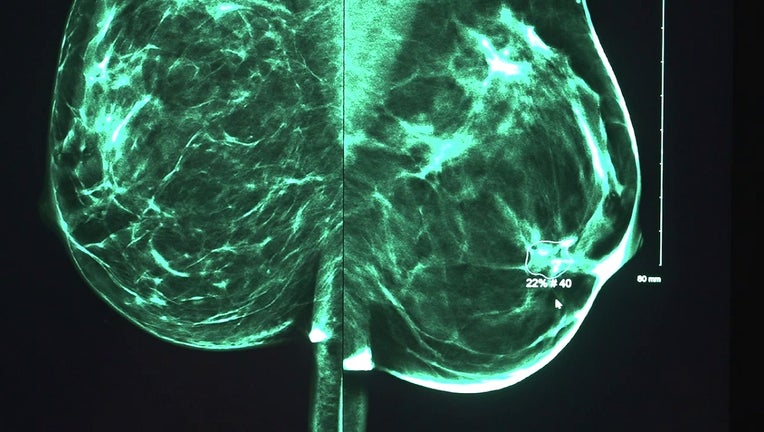Women should get breast cancer screenings starting at age 40: Task force

(FOX 9)
MINNEAPOLIS (FOX 9) - Jennifer McLaughlin still remembers the day after Christmas five years ago when she first got the call that led to her diagnosis.
"I didn't even have a lump. I had no symptoms whatsoever. I thought, ‘This can't be really happening,’ but it did. I went in for a biopsy, and sure enough, I had breast cancer," McLaughlin said.
She began her regular mammogram screenings at age 40, but after working at the Hope Chest for Breast Cancer resale shop and watching two sisters go through breast cancer, in her 50s, she pushed for even more information.
"So I went in for my yearly mammogram and asked if they had the new 3D mammogram," McLaughlin said.
Her cancer had already started spreading, but the routine testing caught it at Stage 1. She’s glad to see new recommendations encouraging women to be screened earlier for breast cancer.
An influential panel said Tuesday that women should begin getting mammograms every other year starting when they’re 40 years old, instead of waiting until 50, according to a draft recommendation from a federal task force. The U.S. Preventive Services Task Force has long said women can choose to start breast cancer screening as young as 40, with a stronger recommendation that they get the X-ray exams every two years from age 50 through 74. Black women are 40 percent more likely to die from breast cancer than white women.
RELATED: Regular mammograms for women should start at 40, not 50, US health panel recommends
"It's a very good feeling to find small cancer that is treatable. It's very sad to find a huge cancer and you realize if they just had a screening mammogram years ago, you would have found it," said Dr. Deborah Longley, a diagnostic radiologist and breast imaging specialist with Allina Health.
Longley, who’s been interpreting mammograms for more than three decades, believes women should start screening at 40. She showed us example after example of patients whose cancer was so small, sometimes less than a centimeter in size, they wouldn't be able to feel it.
"The youngest breast cancer (diagnosis) I've seen is 21," Longley said.
She says it's common to see women in their 40s who have this cancer and is glad to see new recommendations encouraging them to get tested sooner.
"It is really good news. And lives will be saved. I think that's what's important," Longley said.
In McLaughlin’s case, her five years in remission are proof of the importance of getting screened regularly for breast cancer.
"Please make sure that you tell your sisters, your friends, your mom about this. I want to spread the word. Catch it early," McLaughlin said.
She also is emphasizing the importance of patients advocating for themselves. She said when she first asked to get the 3D mammogram, health professionals tried to talk her out of it out of concern it wouldn't be covered under insurance. It did end up being covered, and McLaughlin said a regular mammogram wouldn't have caught the cancer at the time.
"I tell every woman that I know, ‘Please do 3D mammograms because if I wouldn't have done it, it could have gone through the lymph nodes, is what they told me. I would have found a lump, and it would have been much more serious,'" she explained.

